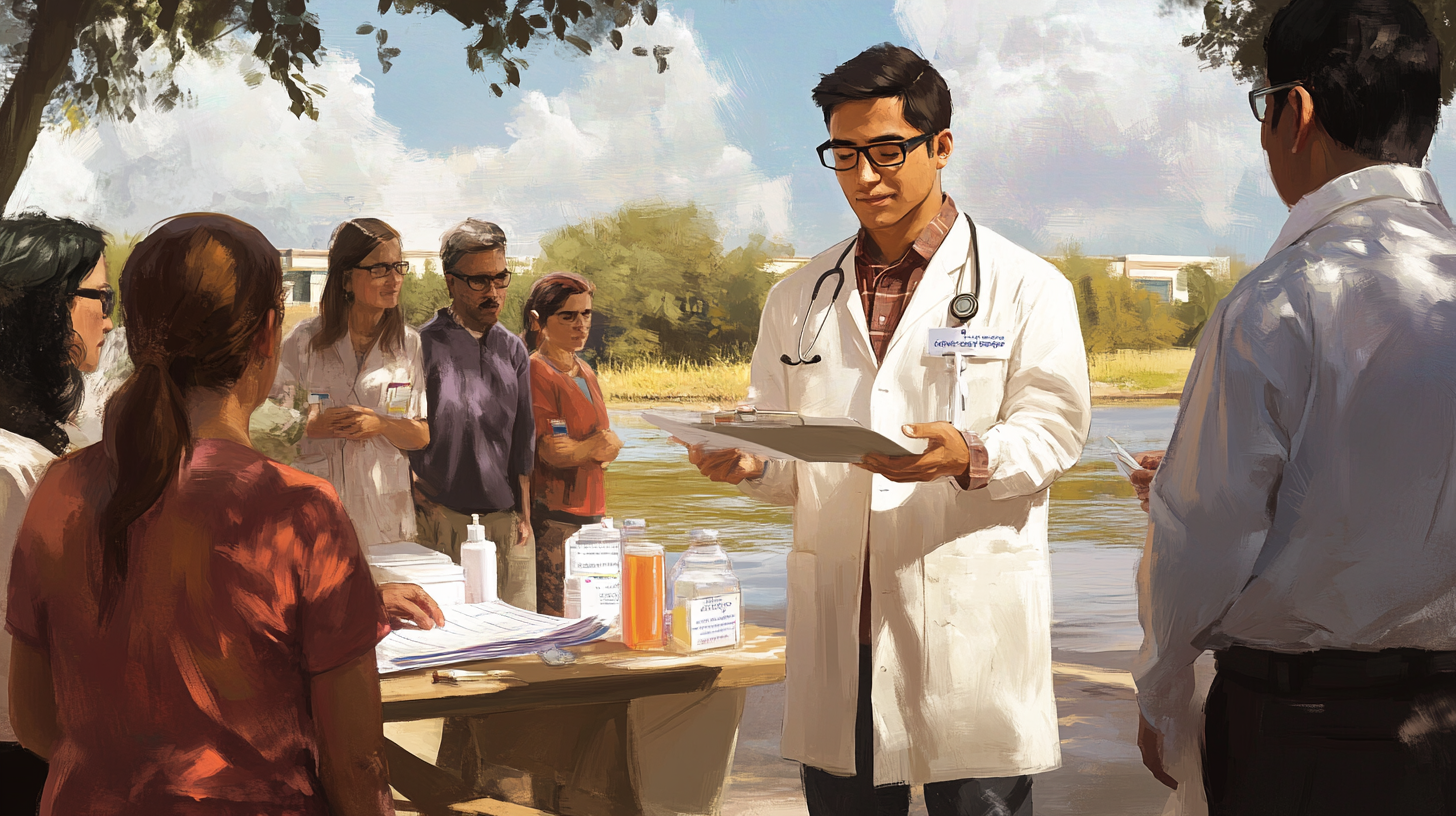UTRGV Student’s Groundbreaking Diabetes Research Offers Hope for Valley’s Underserved Communities
Innovative Approaches to Tackling Diabetes in South Texas
In a region where diabetes is notably prevalent, Hector Trejo, a dedicated medical student at the University of Texas Rio Grande Valley (UTRGV), is making strides with his research on diabetes management. Trejo’s work emphasizes an integrative approach, combining traditional medical treatments with inputs from dieticians, exercise scientists, and behavioral health experts to address the high incidence of diabetes in underserved communities across the Rio Grande Valley (RGV).
Unpacking Diabetes in the Rio Grande Valley
The Rio Grande Valley is one of the most affected areas in the United States when it comes to diabetes. According to a report by the Texas Department of State Health Services, the Valley has some of the highest diabetes rates in the state, with approximately one in three individuals impacted by the disease. This aligns with Trejo’s concerns about the silent progression of diabetes in many community members. “Most people say that they feel fine, but underneath — it tells another story,” Trejo states. His goal is to uncover and address these underlying issues before they manifest in severe health complications.
Changing the Course Through Holistic Health Practices
Trejo’s innovative study, supported by UTRGV’s resources, integrates knowledge from various health disciplines. By engaging collaborators from dieticians to mental health professionals, Trejo is spearheading an effort that emphasizes the role of comprehensive lifestyle management alongside standard medical care. “We need to look at this so that we can come up with better approaches,” Trejo insists. This means tackling diabetes not just as an isolated condition but as a consequence of broader lifestyle factors that must be managed in unison.
Local health practitioners are speaking positively of Trejo’s approach. Dr. Alan Rodriguez, an endocrinologist based in McAllen, expressed strong support for the research. “What Hector is doing goes beyond typical treatment,” Rodriguez says, “He’s creating a framework that could set national standards for holistic diabetes care, especially in economically struggling areas.”
Community Impact and Engagement
For the RGV community, Trejo’s efforts could signal a turning point. By offering free and low-cost health services and education through his research initiative, he’s working to make significant impacts on public health among Valley residents who often lack sufficient access to healthcare resources. His work is already resonating. Elisa Martinez, a Valley native and community health worker, describes Trejo’s study as not just medically significant but deeply personal. “For South Texas, it’s more than just research. It’s about restoring hope in communities that have felt neglected for so long,” Martinez comments.
A Path Forward: What Trejo’s Research Means for Future Healthcare
As Trejo nears the completion of his medical studies and transitions into his residency at DHR Health, the implications of his research could pave the way for broader healthcare reforms in the region. While the final results of his study are still pending, his work has already inspired calls for policy changes that focus on integrated healthcare models suited to areas with similar socio-economic challenges.
Beyond the immediate benefits to the Valley community, Trejo’s research may influence healthcare policies nationwide. By highlighting the interconnectedness of physical health, diet, and mental well-being, he presents a potential case study for healthcare systems across the country aiming to reduce the burdens of chronic illnesses like diabetes.
Challenges and Considerations
Despite the optimism, there are challenges to address. Implementing such comprehensive health approaches requires considerable resources and collaboration across different sectors of public health. Concerns around sustainable funding and scalability should not be overlooked. Experts like Dr. Teresa Galvan from UTRGV emphasize the importance of securing financial backing and structured partnerships to enable this model health initiative to thrive long term.
Yet, the support for Trejo’s vision is robust. Community healthcare providers, regional policymakers, and residents are already discussing ways to incorporate these integrated health strategies into local County Health Department operations, particularly in remote and underserved areas.
Looking Ahead: Resources to Stay Informed
For those interested in staying updated on Trejo’s research progression, UTRGV will host a series of public forums and workshops throughout the Valley. These events will offer insights into the ongoing study and proposed methods for disease management through community collaborations. Residents are encouraged to attend and participate in these informational sessions to learn more about the initiatives and how they can benefit from them.
Additionally, local officials are urging community members to voice their support and ideas to ensure widespread outreach and adoption of these health frameworks. With this collective effort, the dream of tackling diabetes comprehensively in the Rio Grande Valley could become a tangible reality.
In a time marked by a changing healthcare landscape within the RGV, Trejo’s commitment represents more than just a scholarly pursuit; it is a movement poised to redefine how diabetes is managed and mitigated across underserved communities in South Texas and potentially beyond.







